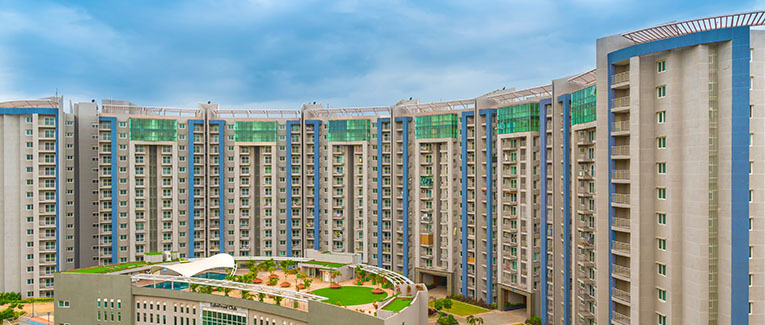
The cost of a flat is seldom as advertised. There are plenty of hidden components that a buyer must understand before setting out to buy a property.
The calculation is never as easy as “the size of flat in square feet times the base price per square foot”, as advertised through a glossy brochure.
The inexperienced get bewildered when an apartment ends up costing them at least 10% more than the agreed-upon value.
Let us take a look at the various components that get added to the base price.
Determining the Final Cost of a Flat
- Basic Sale Price (BSP): This is the value per square foot advertised by developers. It consists of the cost of land and the development of a building as per specifications.
- Preferential Location Charge: In the standard G+4 construction, the first floor above the garage is never popular. Neither is the top floor (unless it is a duplex or penthouse) since Indian summers can make life miserable for those living below the roof. The third floor is the most expensive, followed by the second floor. Road-facing flats are more costly unless the south-facing flats are in the rear, as Indians prefer flats that face south for more sunlight. Corner apartments and those with better views fetch higher prices, as well.
- External Electrification Charges: This is the cost of connecting the electric meter and the wiring from the meter to the flat as charged by the public utility company. The developer leaves a conduit in the walls to run the cables, but the connection itself is done by the electricity company. They charge according to their rules and measurements.
- Infrastructure Development Charges: If the government is required to make an expenditure for project viability, the charges are passed on to the buyer. The IDC has no specific components, but they usually include the extension of water mains or fees for developing paved roads.
- External Development Charges: Every project needs a sewage connection, as well as streetlights and closed-circuit television. These costs are charged separately by the developer.
- Car Park Charges: The parking area on the ground floor or basement is sold separately from the flat. It is usually charged at the base price. However, for expensive projects, the developer often provides free parking to make it more lucrative.
- Club Membership: Condominiums and posh gated communities often have a fitness club and recreation hall. There is also a swimming pool in many projects. Access to these facilities requires a club membership, which comes at a fee. An NRI can safely opt out of it unless they plan to move back to India.
Legal Fees and Taxes
The final step in the purchase process is the legal transfer of the title. It is quite expensive and has the following components.
- Stamp Duty: This is the charge by the state government on the property transfer. Any transaction attracts tax, and stamp duty is the preferred way of taxing property sales. The amount varies between 3–5% of the property value. Unless stamp duty is paid, the transaction is not valid.
- Registration Fee: Though the tax is charged by the government, the contract is executed in a local court. The registration fee is the court’s charge for administering the process and making it legally binding. It is between 1–2% of the property value.
- GST: The goods and sales tax is levied on every under-construction property sale. However, it only applies when development or construction has happened. Old properties sold without any modifications do not attract GST. The rate is 1% for affordable housing (under 45 lakhs, or a little more than $60,000), and 5% for any property valued more than 45 lakhs. Since an input tax credit is available, it is more affordable than it appears.
- Brokerage: The real estate broker who helped you locate the flat needs to be paid. Usually, he or she is paid a certain percentage of the property value by both the buyer and seller. This amount is negotiable.
- Lawyer Fees: Though the developer would provide the sale agreement and deed, you would need a lawyer of your own to inspect the clauses and protect you. If you are buying property from an individual, a lawyer would be required to draw up a sale deed and agreement. The amount of consultancy can vary between 5,000 and 50,000 rupees (about $68 to $680), depending on the expertise of the lawyer and his or her level of involvement.
Though these components do vary a lot, you could expect an addition of about 20% to the base price for property and another 10% for various taxes and legal fees. An apartment with a base price of 1 crore (about $135,000) would cost you about 1.2 crore (about $163,000) in reality.

